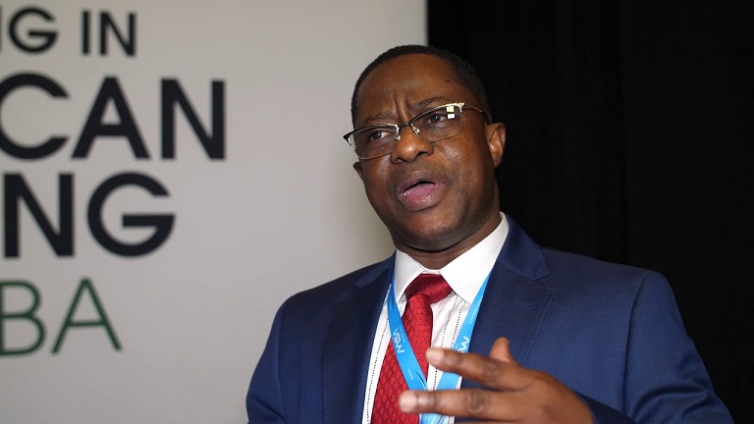The Institute for Energy Policies and Research is calling for the establishment of two ministries for the energy sector in order to have a clear cut focus for the sector, whilst managing it properly.
It wants the Ministry of Power to oversee the management of GRIDCo, Electricity Company of Ghana, NEDCo, VRA, the Independent Power Producers, Bui Authority as well as yet to be established Renewable Energy Authority and a Ministry for Oil and Gas to oversee Ghana National Petroleum Corporation, Petroleum Commission, the Tema Oil Refinery, BOST and National Petroleum Authority.
“The growth in the sector has made it impossible for a single Ministry to manage the entire energy sector. In the 1990s, the ministry was called Ministry of Mines and Energy. This ministry was then split to provide focus for the energy sector and manage growth. We strongly believe that the time has come for two ministries, Ministry of Power and Ministry for Oil and Gas to properly manage this sector”, it said in a statement signed by its Executive Director, Kwadwo Poku.
It further said that the power sector needs serious attention as well as resources since the Energy Sector Recovery Programme stipulate that if no action is taken the indebtedness within the power debt could reach $12.5 billion by 2023. This will be about 18.7% of Gross Domestic Product.
“In the post covid-19 world, this growing debt can collapse the economy”, it stressed.
Power sub-sector
“The country has a total dependable power of 4,657megawatts of power as of June 2020 and a peak demand of 2,957MW. The peak demand is growing at approximately 10% year-on-year. The ongoing industrial policy of 1D1Fand the high gold prices will make the local mining companies increased the demand for electricity.
“If the post covid-19 economic environment does not affect our local industries as in Europe and America, the total peak demand will reach around 4329MW by 2024. This means our dependable capacity should grow to about 5,000MW by 2024”, the statement explained.
It also said “the critical decision by the government that will affect the growth of Ghana’s generating capacity is the issue of Take or Pay and Take and Pay.”
To this end, it pointed out that the government in 2021 needs to give a clear indication on how the new policy of Take and Pay will be implemented for the existing Power Purchase Agreements (PPA) which have Take or Pay, stressing “since the Minister of Finance made the announcement on the floor of Parliament that all Take or Pay agreements will be converted to Take and Pay, nothing to that effect has happened, and this has created uncertainty for investors in the sector.”
The Independent Power Producers (IPPs) has an unpaid invoice of up to $1.44 billion as of September 2020, according to the Chamber of Independent and Bulk Distributors.
The institute said there is the need for huge capital investment into the electricity distribution and transmission infrastructure in the country to help reduce the losses within the sector.
Presently, the generating mix in Ghana is made up of 37.3% hydro, 62.5% thermal and 0.2% renewable
Oil and Gas
The statement said there are challenges ahead in 2021 for the oil and gas industry since the world economy post covid-19 is forecast to slow down until 2022 for recovery.
Crude oil prices are presently hovering around $50 but is projected to be around $45 in the next 12 months, according to Energy Information Administration.
Latest Stories
-
We’ll not engage in opaque and obscure deals when elected – Prof Opoku-Agyemang
8 mins -
Energy and Finance Ministries must provide funding to fix energy challenges – IES
15 mins -
Reintroduce Fiscal Responsibility Act to tackle election budget overrun – Osafo Marfo
16 mins -
Prioritise transparency, avoid suppressing the truth – Opoku-Agyemang advises EC
21 mins -
In times of setbacks, I won’t say I was only the driver’s mate – Naana Jane assures Mahama
23 mins -
Joselyn Dumas opens up on why single mothers struggle to find partners
25 mins -
Three damaged ECG pylons result in power outage for 9 Shama communities
28 mins -
Dual citizens eligible for Chief Justice, Chief Director, other positions – Supreme Court rules
1 hour -
SIGA urges increased financial support for SOEs
2 hours -
Akufo-Addo vows to enhance Ghana’s power supply
2 hours -
19 steps for getting over even the most devastating breakup fast
5 hours -
8th Ghana CEO Summit launched with focus on AI transformation, economic diversification
5 hours -
Prof Opoku-Agyemang has not been given a fair appraisal – Ablakwa
5 hours -
Rainstorm wreaks havoc in Keta and Anloga districts, residents count their losses
5 hours -
Global Plastics Treaty negotiations begin in Ottawa as countries converge on phasing out problematic plastic uses
5 hours

